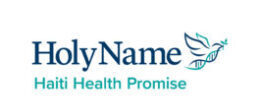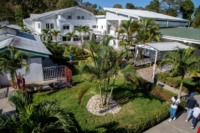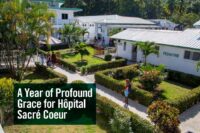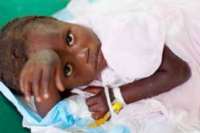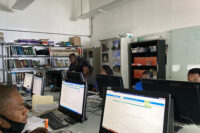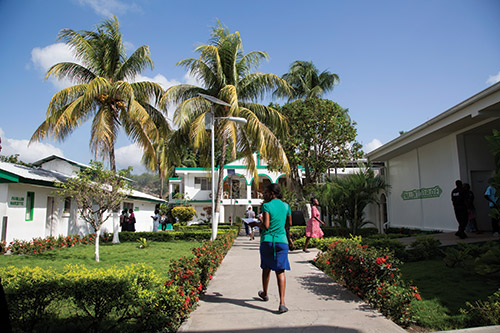 By Alan Stein, M.D., St. Louis Urologist
By Alan Stein, M.D., St. Louis Urologist
A medical missionary — it sounds good to a lot of people. To me, it’s off tune. I think of missionaries as people who do honorable things to get a chance at executing their ulterior motive (the real mission). Similar to the business plan of a TV show; I conceive of missionaries as delivering a free program with commercials. But “missionary” is what I got called as I headed to Haiti — without commercials — to volunteer as a Urologist for a week.
I am not ashamed to admit that I headed to Haiti with less than noble intentions. I brought some medical supplies and a load of selfish incentives. Volunteering one’s service to those in need is a nice thing to do. But for me, this trip was to be an adventure, another notch in my belt, an indulgence, not an act of character building by denial and sacrifice. I was (and remain) embarrassed when someone applauds me for spending a grand total of seven days on a medical mission as a volunteer physician at the Hôpital Sacré Coeur in Milot, Haiti. Honestly, the experience was fun, the food good, the accommodations comfortable, the fellowship satisfying, and the patients were pleasant. I enjoy practicing Urology whether in Haiti or anywhere else. My “missionary” trip was most certainly not a personal sacrifice; I got much more than I gave and I don’t feel the least bit guilty!
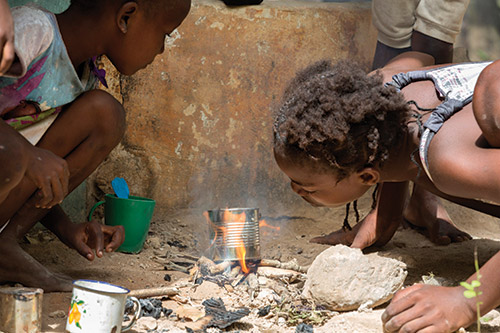 So, is the right attitude to volunteer time and money until it hurts? Is it like a medicine that can’t be good unless it tastes bad? That concept is wrong and detrimental to the donor and recipient of the charity. My guess is that the most of those who have given their time and money would agree with me. Acknowledging that the donor gets a good deal, it’s important to determine if the recipient gets a good deal also. Is the donor delivering their side of the bargain?
So, is the right attitude to volunteer time and money until it hurts? Is it like a medicine that can’t be good unless it tastes bad? That concept is wrong and detrimental to the donor and recipient of the charity. My guess is that the most of those who have given their time and money would agree with me. Acknowledging that the donor gets a good deal, it’s important to determine if the recipient gets a good deal also. Is the donor delivering their side of the bargain?
Am I working hard or am I working smart? To improve anything, one must constantly search for a better way.
That includes asking if there is a better way to donate —one that accomplishes more, even if it is less satisfying to the donor. As physicians donating our time and effort, we must ask this question: Are we so proud of ourselves and so self-righteous that we justify lowering our professional standards? No self-respecting doctor would answer yes.
But, that uncomfortable question is much more complex than it seems.
In a resource poor environment like Haiti, it would be impossible to do any good at all WITHOUT lowering professional standards. So prioritization and triage are essential. Something or someone has to lose out. The challenge is to limit the reduction as much as possible. For me, a professional boundary that cannot be breached is the rule of placing the patient’s interest above everything else. Therefore, it’s important to examine if my work in Haiti is the optimum way to help my patients.
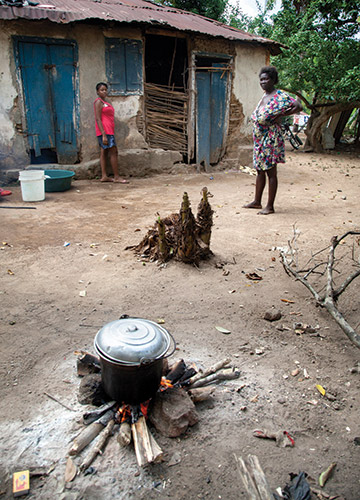 One should not dwell on these issues too much! Surgeons are not known for their deep philosophical analysis, and I’m not about to break that trend even if I could (I can’t). Surgeons are known for getting things done (I like to think I can). Too much study will lead to sitting on an easy chair, pontificating, getting fat and not doing any good for anyone. Despite all the questions posed above, there is no question that it is better to dive in, test the water and THEN figure out what to do next and how to make it better. So, I dove in November, 2014.
One should not dwell on these issues too much! Surgeons are not known for their deep philosophical analysis, and I’m not about to break that trend even if I could (I can’t). Surgeons are known for getting things done (I like to think I can). Too much study will lead to sitting on an easy chair, pontificating, getting fat and not doing any good for anyone. Despite all the questions posed above, there is no question that it is better to dive in, test the water and THEN figure out what to do next and how to make it better. So, I dove in November, 2014.
I learned that the Haitians are wonderful people who deserve our help and greatly appreciate it. There are a lot of poor, sick people who are suffering. It takes remarkably little effort to make a real improvement in their lives. I learned that it’s possible to deliver a great deal of urologic care with less equipment and supplies than you think you need.
I formed some ideas and plans.
1. Just because you can get by with less equipment and supplies does not mean you should. More equipment and supplies would help.
2. I would like to arrange for a Haitian urologist to serve HSC on a continuous basis. A full-time urologist would multiply our efforts and make them more sustainable. More patients would be served and they would be served in a timelier manner. A full time urology presence would initially require visiting teams of urologists to provide training, organization and financing.
I came to Haiti, proud to be agenda free, but I have acquired one! It is this: I want to convince others to do what I did. Whatever impels you to volunteer time or money to CRUDEM — denial or indulgence — charity or adventure —ulterior motive or not — it’s necessary
to just do it.
If you do it for the “experience,” you will experience people who are desperate to get healthy so they can pursue the same things that make all of us happy. Depending on your philosophy and motivation, you will be blessed, redeemed, gratified, entertained, fulfilled, purified, educated, beguiled, enlightened, or inspired. But you won’t be satisfied; you will be addicted. You will come back to get more and to give more.
